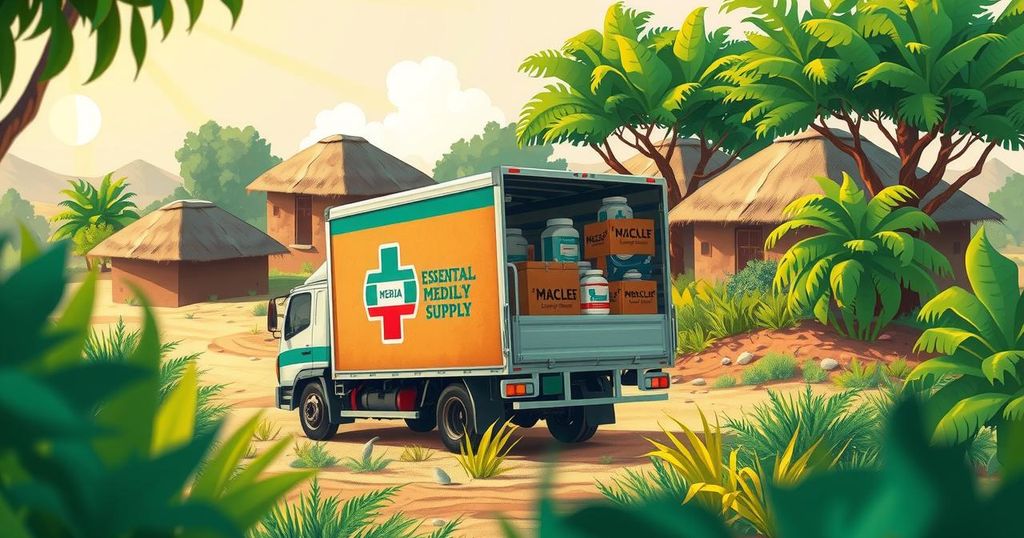The WHO will dispatch leprosy medications to Nigeria after a year-long delay. The delay was due to testing issues, affecting thousands of patients including children. Leprosy, caused by Mycobacterium leprae, leads to severe health complications without prompt treatment. The situation highlights vulnerabilities in the global health supply system and calls for reforms to improve access to essential medications.
The World Health Organization (WHO) is set to dispatch leprosy drugs to Nigeria after a year-long delay caused by testing issues. This delay affected thousands of patients, including children, who were unable to receive essential medication to prevent disabilities associated with leprosy. Nigeria reports over 1,000 leprosy cases annually, and the disease can lead to severe consequences without timely treatment.
Leprosy is caused by the bacterium Mycobacterium leprae, primarily impacting the skin, nerves, and eyes. Although treatable with multi-drug therapy, delays in drug supplies due to bureaucratic hurdles and new testing regulations significantly hampered access. The WHO had to seek a waiver to expedite the shipment, which has been confirmed for delivery on March 9th.
The prolonged shortage has exacerbated the suffering of leprosy patients in Nigeria. Reports indicate that at the ERCC Hospital in Nasarawa, only two patients were admitted during a recent visit, after many were discharged due to a lack of medication. A patient highlighted how her condition deteriorated without treatment, stating, “The pain is worse.” Health professionals at the facility voiced their concerns about the risks of permanent disabilities and emphasized the urgency of patient care.
Nigeria’s National Tuberculosis and Leprosy Control faced challenges in requesting adequate drug supplies in a timely manner. The drugs, produced by Novartis, are supplied free of charge to the WHO, yet additional testing required by Nigeria’s National Agency for Food and Drugs Administration and Control resulted in delays. Meanwhile, the current state of the distribution system has faced scrutiny for structural issues impeding leprosy patients’ access to essential medications.
On a broader scale, this situation underscores vulnerabilities in the global health supply system, reflecting similar stockouts in other countries like India and Brazil. Advocates have called attention to the dire challenges faced by impoverished leprosy patients, emphasizing the importance of ensuring access to life-saving treatments.
The WHO’s upcoming shipment of leprosy medications to Nigeria marks a vital step in addressing the critical shortage that has persisted for over a year. This situation reveals serious shortcomings in the health supply infrastructure, affecting thousands of patients in urgent need of treatment. Comprehensive reforms and timely responses are essential to prevent such delays from recurring and to safeguard the health and wellbeing of vulnerable populations.
Original Source: www.straitstimes.com




